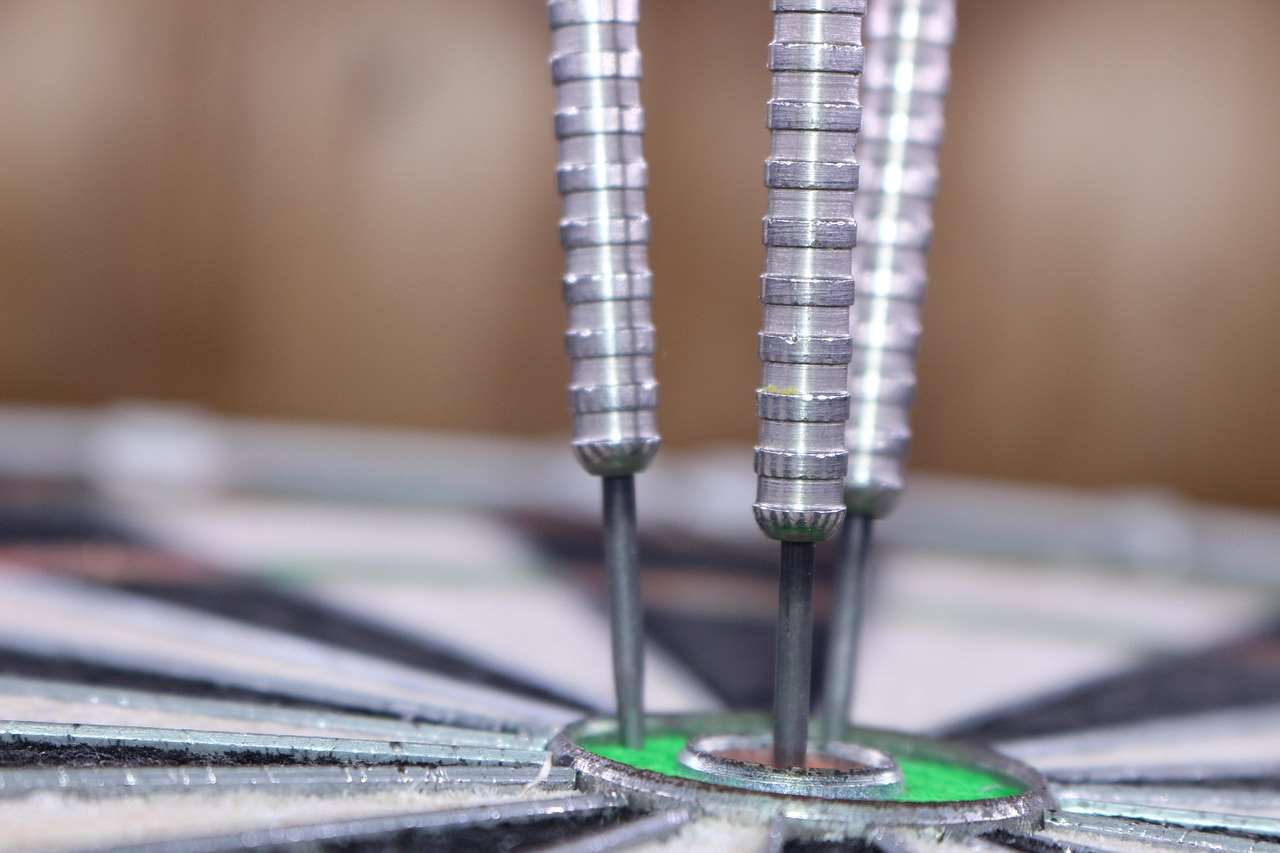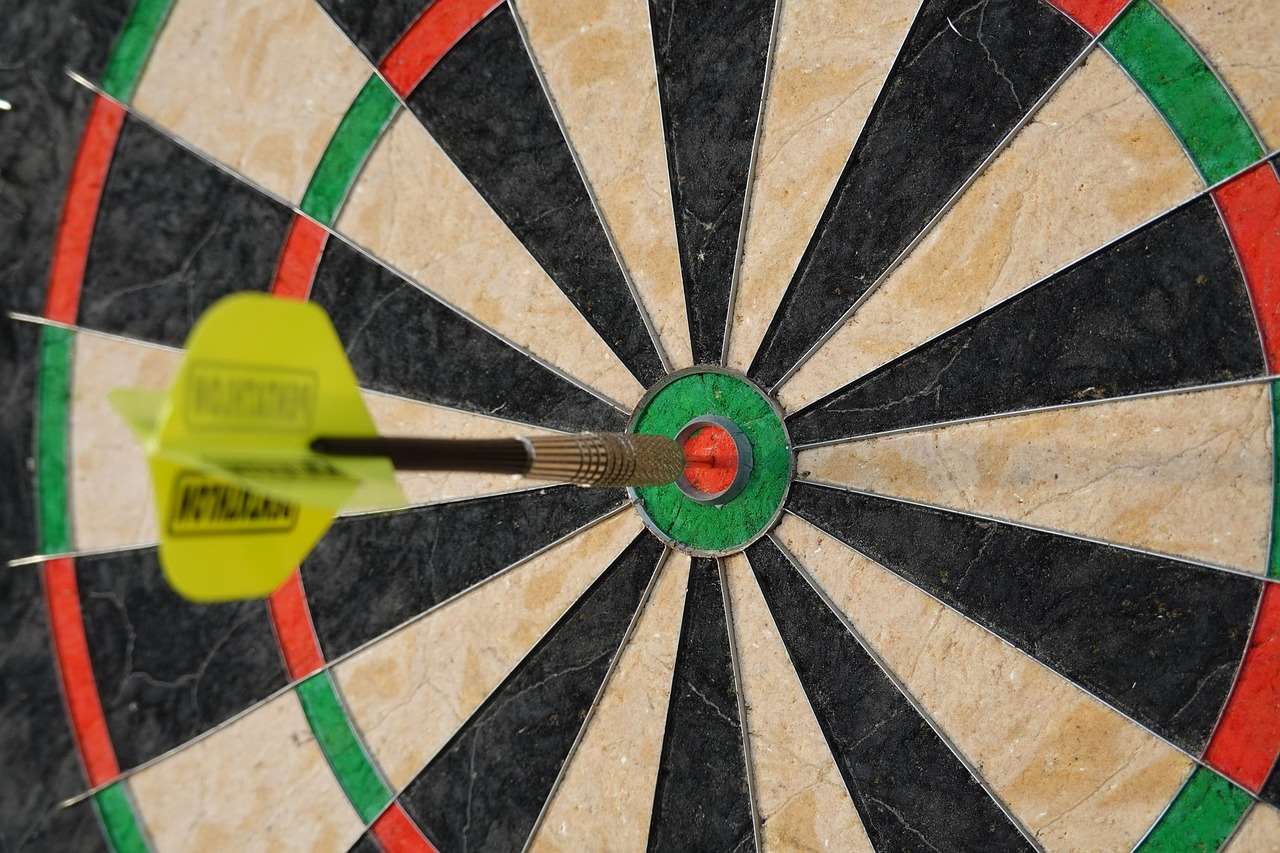The role of the ‘caller’ in maintaining match etiquette is crucial; they act as the match’s voice, ensuring fair play, accurate scoring, and a smooth, respectful atmosphere. This article delves into the specific responsibilities of a dart match caller and provides guidance on how to perform this role effectively, ultimately improving the overall experience for all players.
⚠️ Still Using Pen & Paper (or a Chalkboard)?! ⚠️
Step into the future! The Dart Counter App handles all the scoring, suggests checkouts, and tracks your stats automatically. It's easier than you think!
Try the Smart Dart Counter App FREE!Ready for an upgrade? Click above!
Understanding The Role of the ‘Caller’ in Maintaining Match Etiquette
Dart match etiquette is paramount for fostering a positive and respectful competitive environment. While players are primarily responsible for their own conduct, the caller plays a pivotal role in upholding these standards. Beyond simply announcing scores, the caller acts as an impartial facilitator, ensuring adherence to rules, managing the flow of the game, and resolving disputes when necessary. Think of them as the referee of the dartboard.
A good caller contributes significantly to the match’s atmosphere. They can reduce tension, clarify confusion, and prevent misunderstandings that could lead to arguments or animosity. In essence, the caller is a guardian of fair play and a promoter of good sportsmanship.

Key Responsibilities of the Caller
The responsibilities of the caller extend far beyond just announcing the scores. Here are some of the key duties:
- Accurate Score Announcing: This is the most fundamental duty. The caller must clearly and accurately announce each player’s score after each throw, as well as the remaining score needed to win.
- Rule Enforcement: The caller must be familiar with the official dart rules and ensure they are followed. This includes calling out foot faults, invalid throws, and other violations.
- Dispute Resolution: In the event of a disagreement between players, the caller must act as an impartial mediator and resolve the issue based on the rules and fair play.
- Game Management: The caller controls the pace of the game, ensuring that it flows smoothly and efficiently. This includes calling players to the oche (throwing line), announcing the start and end of legs, and managing any time limits.
- Maintaining Order: A caller should encourage respectful behaviour from players and spectators, ensuring a focused and professional atmosphere.
Essential Skills for an Effective Dart Match Caller
Being a good dart match caller requires more than just knowledge of the rules. It demands a specific skillset that encompasses clarity, impartiality, and strong communication skills. Let’s explore these skills further.
Communication Skills
Clear and concise communication is paramount. The caller’s announcements must be easily understood by all players and spectators. This requires a strong voice, clear articulation, and the ability to project confidence. Avoid mumbling or speaking too quickly. Consider these points:
- Clarity of Pronunciation: Ensure that each number and term is clearly pronounced. This is especially important when calling out complex scores.
- Voice Projection: Speak loudly enough to be heard by everyone in the playing area, but avoid shouting.
- Consistent Cadence: Maintain a steady and consistent pace of speech. This helps players anticipate the information being conveyed.
Impartiality and Objectivity
The caller must remain completely neutral throughout the match, regardless of their personal feelings towards the players. They must enforce the rules fairly and consistently for both sides. Any hint of bias can undermine the integrity of the game. Maintaining impartiality includes:
- Avoiding Displays of Emotion: Refrain from cheering for or expressing disappointment with any player’s performance.
- Consistent Application of Rules: Apply the rules equally to all players, without showing favoritism.
- Fair Dispute Resolution: When resolving disputes, listen carefully to both sides of the argument and make a decision based solely on the rules and evidence presented.

Knowledge of Dart Rules
A thorough understanding of the official dart rules is essential for any caller. This includes knowing the rules for scoring, foot faults, invalid throws, and other common situations that may arise during a match. Familiarity with the rules allows the caller to make accurate and informed decisions, ensuring fair play for all participants.
Consider taking time to familiarize yourself with specific rules related to adapting darts rules for beginners if you are calling a match with novice players. You may also want to understand adapting darts rules for small spaces: tips and tricks if space is limited.
Practical Tips for Performing the Caller Role Effectively
Now that we’ve covered the key responsibilities and essential skills, let’s delve into some practical tips for performing the caller role effectively. These tips can help you enhance your performance and contribute to a more enjoyable match for everyone involved.
Pre-Match Preparation
Before the match begins, take the time to prepare yourself properly. This includes:
- Reviewing the Rules: Refresh your knowledge of the official dart rules.
- Setting Up the Scoring System: Ensure that the scoring system (whether electronic or manual) is properly set up and functioning correctly.
- Communicating with Players: Briefly speak with the players to clarify any specific rules or procedures that will be in effect.
During the Match
During the match, focus on maintaining a consistent and professional demeanor. Consider these guidelines:
- Announce Scores Clearly and Accurately: As mentioned earlier, clear and accurate score announcing is crucial. Take your time and double-check your calculations before announcing the score.
- Enforce the Rules Fairly and Consistently: Be vigilant in enforcing the rules, but do so in a respectful and professional manner. Avoid being overly critical or confrontational.
- Manage the Pace of the Game: Keep the game moving at a reasonable pace, but avoid rushing players. Allow them sufficient time to prepare for their throws.
- Address Disputes Calmly and Impartially: If a dispute arises, remain calm and objective. Listen carefully to both sides of the argument and make a decision based on the rules and evidence.

Dealing with Difficult Situations
Occasionally, callers may encounter difficult situations, such as dealing with disruptive players or resolving complex rule disputes. Here are some tips for handling these situations effectively:
- Stay Calm and Professional: Regardless of the situation, maintain a calm and professional demeanor. Avoid getting drawn into arguments or becoming emotional.
- Enforce the Rules Firmly: If a player is violating the rules or behaving disruptively, address the issue firmly but respectfully.
- Seek Assistance if Needed: If you are unable to resolve a situation on your own, don’t hesitate to seek assistance from a tournament official or experienced player.
How The Role of the ‘Caller’ Influences Sportsmanship
Beyond the technical aspects of scoring and rule enforcement, the caller plays a significant role in shaping the overall atmosphere of the match. Their actions can directly influence the level of sportsmanship displayed by players and spectators alike.
Promoting Fair Play
By consistently enforcing the rules and resolving disputes fairly, the caller reinforces the importance of fair play. This creates a level playing field for all participants and encourages them to compete in a spirit of integrity.
Encouraging Respectful Behaviour
The caller can also encourage respectful behaviour by setting a positive example. By treating all players and spectators with courtesy and respect, they create an environment where everyone feels valued and appreciated. This can help to reduce tension and promote a more harmonious atmosphere. Understanding the Basic Darts Fundamentals for Beginners can also assist the caller in assessing fair play.

Reducing Tension and Conflict
A skilled caller can diffuse tense situations and prevent conflicts from escalating. By remaining calm and objective, they can help players to see things from a different perspective and find common ground. This can prevent misunderstandings and promote a more positive and collaborative environment.
Training and Resources for Aspiring Dart Match Callers
While some individuals may possess a natural aptitude for calling, formal training and readily available resources can significantly enhance their skills and knowledge. These resources provide aspiring callers with valuable insights into the intricacies of dart rules, effective communication techniques, and conflict resolution strategies.
Online Resources
Numerous websites and online platforms offer comprehensive guides, tutorials, and articles on dart rules and calling techniques. These resources can be particularly beneficial for beginners who are looking to learn the fundamentals of the role. Many dart associations have comprehensive rulebooks and guidelines available online.
Local Dart Leagues
Participating in local dart leagues can provide aspiring callers with valuable hands-on experience. By volunteering to call matches in a league setting, individuals can hone their skills, gain confidence, and receive feedback from experienced players and officials. This real-world experience is invaluable for developing the practical skills necessary to excel as a dart match caller.

Mentorship Programs
Some dart organizations offer mentorship programs that pair aspiring callers with experienced professionals. These mentors provide guidance, support, and personalized feedback, helping mentees to develop their skills and knowledge at an accelerated pace. This one-on-one interaction can be incredibly beneficial for individuals who are serious about pursuing a career as a dart match caller.
Conclusion
The role of the ‘caller’ in maintaining match etiquette is undeniably significant. It extends beyond merely announcing scores; it encompasses ensuring fair play, upholding rules, resolving disputes, and fostering a positive atmosphere. By mastering the essential skills of clear communication, impartiality, and rule knowledge, and by adhering to the practical tips outlined in this article, aspiring callers can significantly enhance their performance and contribute to a more enjoyable and respectful darting experience for everyone involved. Remember, a good caller is not just a scorekeeper; they are a facilitator of fair play and a guardian of sportsmanship. So, step up to the oche, embrace the responsibility, and help create a better darting world. Now, why not explore some Fun dart game variations with modified rules?
Hi, I’m Dieter, and I created Dartcounter (Dartcounterapp.com). My motivation wasn’t being a darts expert – quite the opposite! When I first started playing, I loved the game but found keeping accurate scores and tracking stats difficult and distracting.
I figured I couldn’t be the only one struggling with this. So, I decided to build a solution: an easy-to-use application that everyone, no matter their experience level, could use to manage scoring effortlessly.
My goal for Dartcounter was simple: let the app handle the numbers – the scoring, the averages, the stats, even checkout suggestions – so players could focus purely on their throw and enjoying the game. It began as a way to solve my own beginner’s problem, and I’m thrilled it has grown into a helpful tool for the wider darts community.